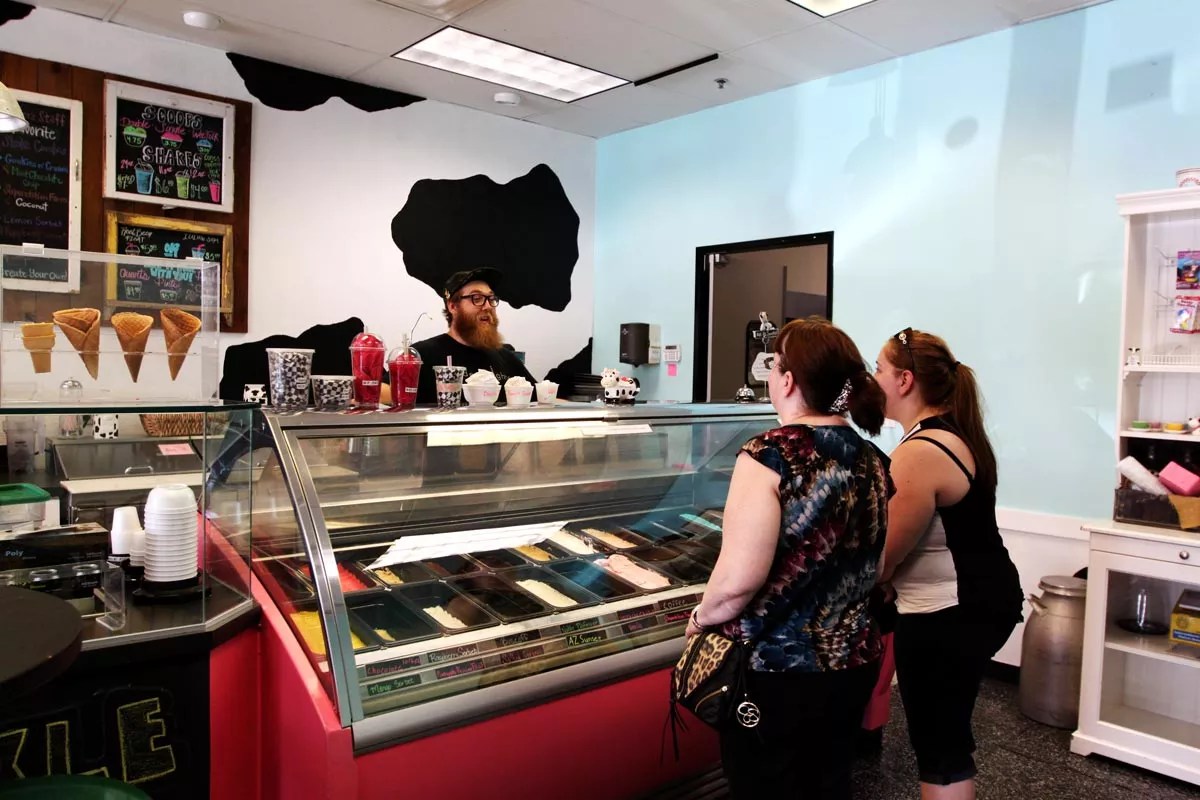
Evie Carpenter

Audio By Carbonatix
Arizona’s minimum wage increased from $10 to $10.50 this week. That may not seem like a big deal, but consider the position of the restaurant owner: If the restaurant has 15 employees working at minimum wage, that 50 cents per hour per employee would, figuring a 40-hour work week, equal $15,600 in additional payroll a year.
When you consider the thin profit margins that sustain the restaurant industry, 5 percent is no small increase.
And this figure doesn’t even account for the payroll tax. Nor does it consider the spectrum of price hikes that will occur in the food-supply chain now that farm workers, food and beverage distributors, and the invisible host of pre-restaurant workers who make restaurant meals possible will be getting the same raise.
(Well, the ones on the payroll will be.)
On the surface, a pay raise would seem to be a boon for lower-income workers. Farm laborers and dishwashers deserve a more comfortable living, no question. But is a minimum wage hike the answer?
The issue is complex. “It’s part of a bigger discussion,” says Chris Bianco, owner of several area restaurants. “There’s a lot of moving parts. It’s a big issue for a lot of restaurants right now, and for a lot of people.”
There are also a lot of different takes.
“The minimum wage is just political smoke and mirrors right now,” says Josh Hebert, chef at Hot Noodles Cold Sake and Chef Lounge. “The restaurant business is damaging itself by over-saturation. It’s hard to find employees. Supply and demand dictate the situation naturally.”
Hebert is referring to the widespread belief that there is a restaurant bubble in Phoenix. An effect of this bubble, he believes, is a shortage of kitchen staff to go around. Because of this, some restaurants have paid more than the current minimum wage even before this week’s increase.
“I don’t know anybody who is paying minimum wage right now,” Hebert says. He notes that many of his fellow restaurant owners pay $13 an hour or more.
“Suppliers have the ability to raise prices in a way that restaurants can’t,” Hebert says. “For some reason, people will pay changing prices for steak in the grocery store, but not in a restaurant.”
Though he believes much of the fracas over the minimum wage hike is illusory, he believes that it will drive up supply chain prices. In theory, this would seemingly lead to he and other restaurant owners raising prices. But such price changes are not always possible. “Suppliers have the ability to raise prices in a way that restaurants can’t,” Hebert says. “For some reason, people will pay changing prices for steak in the grocery store, but not in a restaurant.”
Adam Allison of Handlebar Diner in Mesa, which opened early in 2017, started his employees at $12 an hour. Allison knew the increase was coming.
The vote that triggered the minimum wage hike occurred in 2016. Minimum wage was $8.05 in 2016, an hourly rate of $2.45 lower than today. In 2019, the rate will increase to $11. In 2020, minimum wage will jump to $12. Each of these increases has long been on the books, meaning restaurant owners like Allison have had time to prepare for the changes.
“I think it’s a short-term fix,” Allison says. “It’s just kind of a Band-Aid on the issue.”
Allison believes that with a higher minimum wage, the tendency will be to cut employee hours. “There’s such a fine line in the restaurant industry with margins that something like this could take away your profits,” he says. “There’s two ways to fight this: Raise prices or cut hours.”
Like Hebert, Allison foresees price hikes from suppliers. At Handlebar Diner, Allison does farm-to-table cooking. He has already noticed some produce, such as lettuce, getting more expensive.
“I want people to make a good living,” Allison says, “I just don’t know if raising the minimum wage is the right way to fix it. I’m more on the line of fixing it through taxes.”
“I want people to make a good living,” Allison says, “I just don’t know if raising the minimum wage is the right way to fix it. I’m more on the line of fixing it through taxes.”
Casey Stechnij also has concerns over the minimum wage hike. Stechnij is the owner of Superstition Farm in Mesa, the ice cream shop Udder Delights in Gilbert (which uses dairy from Superstition), and an organizer of food truck events called “FEASTivals” in the East Valley.
“When I first opened the [ice cream] store, minimum wage was $5.25. At $5.25, I was able to hire two young kids for one shift. Once that bumped up to $8, $10, and $10.50 plus sick pay, the price of labor went up by one-third or more. Instead of hiring two kids on a shift, we started hiring one adult. An unintended consequence is that for entry-level positions, employers may not be looking to hire young people anymore.”
Like Hebert, Stechnij laments that even though minimum wage is escalating the cost of the labor and raw materials that come before he even starts to make food, he cannot raise the price of that food. “The price of ice cream must fit into a very small range; otherwise, customers would just go to the supermarket,” he says.
“The bar keeps rising higher and higher,” he says. “We’re pricing out future entrepreneurs to participate in our society. We don’t have the ability and the capital and can’t stomach the risk.”
Stechnij believes the wage increases have created obstacles for entrepreneurs. “The bar keeps rising higher and higher,” he says. “We’re pricing out future entrepreneurs to participate in our society. We don’t have the ability and the capital and can’t stomach the risk.”
“I don’t know that I would open up an ice cream shop today,” he says. “Ten years ago, it sounded like a good idea.”